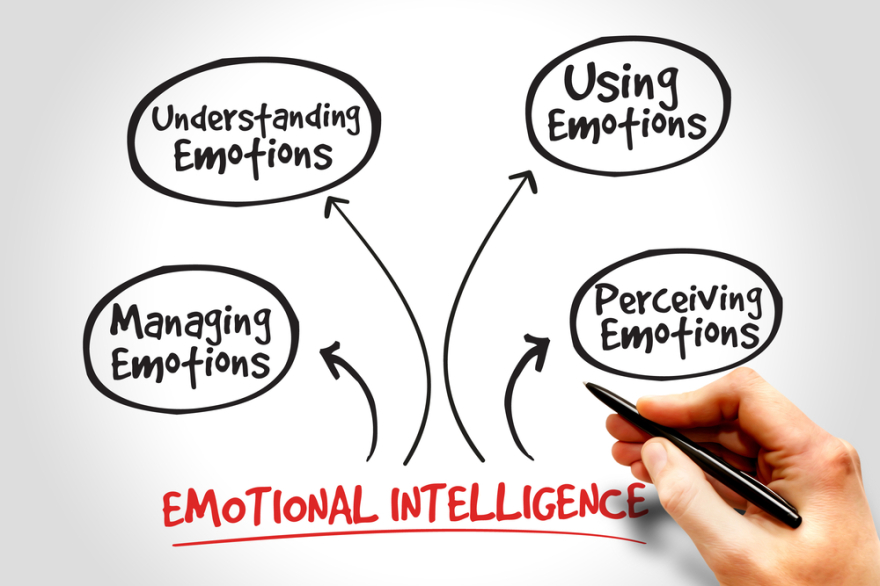|
Helping Relationships by Controlling Your Emotions
Rev. Dr. Kitty Boitnott, NBCT, RScP
Heart-Centered Career Transition and Job Search Coach | Life Strategies and Stress Management Coaching

Relationships of every kind are all bound up in emotions. We love, we hate, we resent, we respect. Sometimes we can feel a combination of emotions all at once. And the more complicated the relationship, the more complex the emotions can be.
Our ability to control our emotions can be the key to whether a relationship thrives or dies. However, if a particular individual easily triggers you, it may be more difficult in some situations than others to maintain control.
Even your relationship with your children can be fraught with emotional responses if they behave in a way that you find unacceptable. You may continue to love them but not have a great relationship with them because you are angry. The same goes for how you might feel about a parent or a spouse.
The more intimate the relationship, the more difficult it can be to have a check on your emotional responses.
Marriages start with people pledging to love one another for the rest of their lives. But we all know that things can happen that get in the way of even the best intentions. For example, it's difficult to remember those vows when trust is broken.
The thing is that your relationships are essential to you. So you don't want to let a poor emotional response jeopardize those relationships. Perhaps the following tips can help you control your emotions in your various relationships.
1) Step Away Calmly from Confrontation... Don't Storm Off

If you are in a heated argument with your partner, it is easy to lose control of your emotions. You might say or do something that you will regret afterward in the heat of the moment. Many people "storm off" when an argument gets to a certain point. That isn't helpful, however. The problem with ending a conflict abruptly and ending the conversation is that it doesn't help you or your partner.
When you storm off in the middle of an argument, you can make your partner even angrier than they were before. They will feel frustrated that you just took off. A better thing to do is tell your partner that you need to step away for a few minutes to gather your thoughts and calm yourself. Tell them that you need to clear your head by taking a walk or doing something else. But don't just storm out of an ongoing argument. That could make things worse.
2) Don't Focus on a Bad Thing Your Partner Said or Did
Something that can result in you losing control of your emotions is focusing on something your partner did or said that you didn't like. This often happens in arguments between partners, and it rarely ends well. Your partner did or said something that incensed you, and you cannot get this out of your head and keep coming back to it.
It will not be easy to stop doing this if you have done it for a while. But it is necessary to gain control of your emotions when you are in a heated situation with your partner.
So keep working at this to get the best results.
3) Use Deep Breathing Techniques

When you breathe deeply, it will help clear your head, and you will be better placed to control your emotions. If your partner says something disrespectful to you, breath deeply into your stomach. Hold the breath for 3 seconds and then exhale slowly. Practice this so that you can do it automatically.
4) Interrupt your Emotions
Your adrenaline levels will probably rise at the height of a heated argument. If you are not careful, you can lose control of yourself. This is where you are the most vulnerable to letting your emotions get the better of you. At this point, you are likely to do something you will regret later.
5) Avoid Fights with Your Partner
Let's say something terrible has happened between you and your partner. They said or did something that made you angry, and you cannot stop thinking about it. This builds up throughout the day at work, and then it is time for you to go home. All you can think about is having it out with your partner and starting a fight with them.
I know this scenario only too well. I experienced it many times during my marriage.
In my case, I would often fume about something that had happened the night before. I would fret and fume over it all day. I would plan what I wanted to say to get my anger out, but my husband would act as if nothing had happened when I got home. He had moved on. Why couldn't I?
The thing is that we can only control our feelings and responses to situations.
Others don't always respond the way we do. We can be guilty of building things up in our minds. We can too easily create problems where there are none.
That's not the case every time, of course. But if you can start controlling your emotions, you can start looking at situations with more objectivity. For example, you can gauge whether you are overreacting to something.
Perhaps an argument with a spouse triggers a response that originated in your childhood. That's why emotions are so complicated. But the sooner you can start controlling yours, the better.
This is why developing emotional intelligence and exercising our understanding of it is the key to success.

Do everything that you can to avoid fighting with your partner. Fighting with a partner--or anyone for that matter-- will only make you vulnerable to your emotions. Instead, learn to talk things through calmly with your partner. Avoid making any snide comments or being aggressive. Deescalate the emotion so you can work out whatever the conflict is. You'll both be glad you did.
Until next time.
|